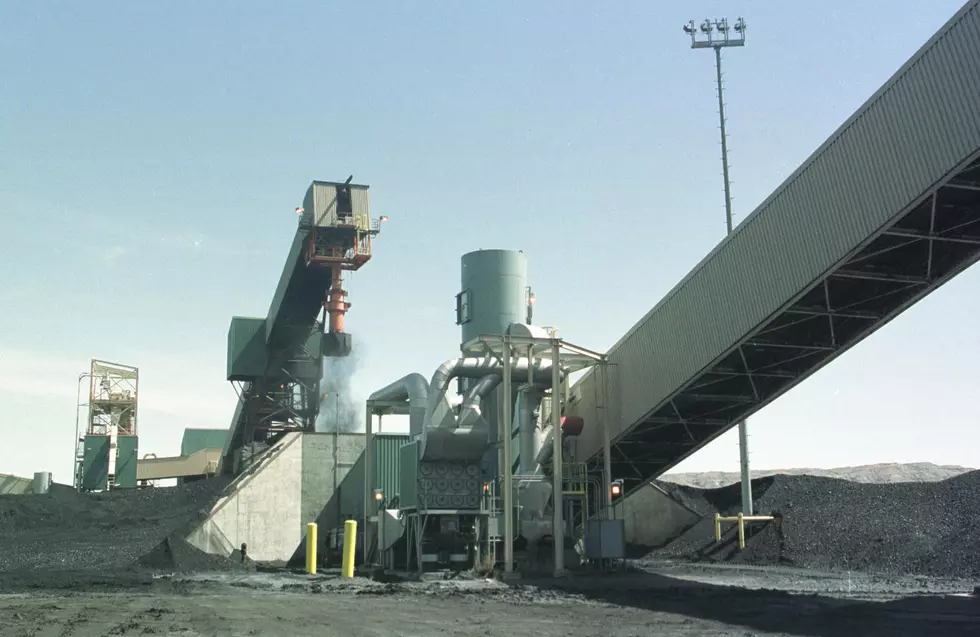
Suddenly, a Drilling Battle in Powder River
CASPER, Wyo. (AP) — In the coal-bed methane days, then-engineer Mark Watson would arrive at the Wyoming Oil and Gas Conservation Commission to find boxes stacked with drilling applications and a box of thank-you doughnuts from the operators.
But the volume of applications for permits to drill over the last year — about 10,000 — has eclipsed even the coal-bed methane days.
The agency can't process that many permits even if it was the sole job of the 44 people working for the commission, and Watson doesn't want to hire a slew of new engineers to do the job, he said. For one, there is a hiring freeze in the state. For another, the prospect of laying off state employees after the blaze dies down is not appealing. For Watson, now the supervisor of the state agency that regulates oil and gas development, this too shall pass.
What's happening in Wyoming is that operators are jockeying for position, particularly in the Powder River Basin. The play started to attract this kind of activity in 2013 and 2014, but the bust in oil prices slowed down what was happening in the basin. With oil prices steadily improving, operators are back at it — not because they are all ready to drill, but because they want to get control.
Wyoming has a first-come, first-served approach to "drilling and spacing units."
"We've always had the attitude in the state, whoever wants to drill, whether you have 5 percent or 95 percent (ownership), you should be able to drill," Watson told the Casper Star-Tribune.
That means the company that gets drilling permits first controls a drilling and spacing unit that may have a handful of other owners. That can allow a minority owner to subsidize his drilling plan with the majority owner's money, simply because his application to drill a well was approved first.
"If you're going to drill you want to be the king," Watson said. "You are in control of how the well is drilled, how the well is completed, then send all your invoices to the non-operator working interest owners."
Companies like EOG Resources are filing applications for permits to drill nearly everywhere they have a land interest, from the Colorado border to the Montana line, he said.
There are pros and cons to this system, and right now a con is that it's flooded the Wyoming Oil and Gas Conservation Commission with thousands of permits, many for wells that no one is trying to drill.
The bottleneck inspired a new policy from Watson to bring those ready to start drilling to the front of the line for permits.
"You don't want to spend all your time on what I call "fictitious permits," he said. "Why do we have the engineers and the technical staff working on it if maybe it doesn't get drilled?"
It's a light-handed approach. The commission could seek to change its rules and control the land battle that's taking place, but that would unfairly change the game for industry.
"All these companies have business plans based on the rules in Wyoming," he said. "I knew I had to be careful to (write) a policy that was going to benefit the staff and not hurt industry."
Oil and gas companies are not of one mind about the new policy from the OGCC, said Bruce Hinchey, president of the Petroleum Association of Wyoming.
The traditional way of jockeying for operatorship may not work quite as well with the priority list the OGCC is using.
"They'll sit on it for two years, and if that well hasn't been drilled then you have to reapply," he said. "That's another bunch of money you've got to expend."
So the influx of applications to drill doesn't mean 10,000 new wells are about to be drilled in the Powder River Basin, but it is a clue into what's happening in that area.
The Powder is moving away from being a risky play to a known one.
Generally, a play starts out with more companies that are smaller, largely funded with private equity dollars. They take on the big risks and they go exploring. As they figure out the play — and in the Powder River Basin that involves stacks of oil-rich rocky layers — they improve drilling. In the last few years, companies big and small have realized not just how well horizontal drilling works in the Powder, but also how to apply it and how to frack those wells.
"The wells are getting better (in the Powder)," Watson said. "At some point it will get as good as it gets and then we'll see consolidation."
The smaller guys will either sell to majors or make a public offering.
For some the Powder is at a tipping point, for others somewhere on the upward curve, approaching a tipping point. In any case, the flood of permits, Watson hopes, will come to an end.
"I don't see this fight for operatorship going on for years and years and years," he said.
More From K2 Radio









